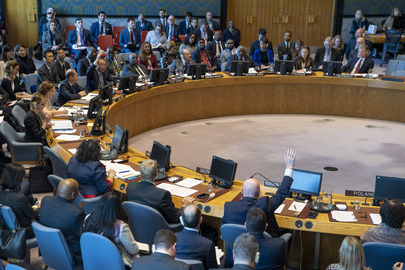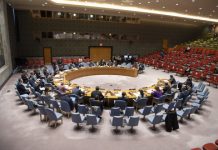Wannapa Suprasert received a call from scammers who drew her into an elaborate false narrative involving identity theft, an international police investigation and the threat of a criminal trial.
She was told that she and family members could face jail time: “They made a threat that they would be tapping my phone. The mind is very powerful because once you’re in that delusion, I guess I couldn’t think clearly and I was just very concerned about my family safety,” she said.
It began on a Friday afternoon in March 2024 when Ms. Suprasert, who goes by the name of Bow, received a call from a woman claiming to work at the Thai embassy in Washington DC, in the United States.
She was told that a copy of her passport, which she had recently renewed, had somehow fallen into the wrong hands and that she was facing the danger of identity theft.
During that same call, she was transferred to an official working for what she was told was the Thai Central Investigation Bureau in Bangkok.
She was told to provide identity cards and other personal details, including bank accounts, as part of the supposed investigation.
Prime suspect
And then came a shocking twist: “I was told I was a suspect in an international money laundering scheme,” Bow said, “and they demanded that I prove my innocence.”
Part of the proof involved the transfer of money from her own bank account to the scammers’ account.
“They promised to give it back; they said that had to do a deeper dive investigation into the money, which I didn’t quite understand because I thought I can just send them my pay stub and then they can see that I earned the money in the US legally,” she said.
Bow was understandably stunned and frightened but had the composure to call the Thai embassy back to get more information – and clarify what appeared to be her dire legal situation.
It was Friday afternoon in San Francisco on the West Coast, where she lives, and due to the time difference, the Thai embassy on the East Coast had already closed.
It was only later she realized that the scammers’ call had been carefully timed.
Sophisticated sting
“I guess the story just kind of built from there and that’s how I ended up sending five wires totaling over $300,000,” she said.
Bow fell victim to a sophisticated operation which according to the UN Office on Drugs and Crime (UNODC) is being increasingly adopted by international organized crime networks to con the unsuspecting out of thousands of dollars.
UNODC said that the transnational organized crime groups in Asia which carry out these types of scams are expanding their operations deeper into the region and far beyond.
“We are seeing a global expansion of East and Southeast Asian organized crime groups,” said Benedikt Hofmann, UNODC Acting Regional Representative for Southeast Asia and the Pacific.
“This reflects both a natural expansion as the industry grows and seeks new ways and places to do business, but also a hedging strategy against future risks should disruption continue and intensify in the region,” he added.
The three-month-long scam that Bow endured resulted not just in the loss of over $300,000 but also intense emotional despair which led to depression, sleepless nights and nightmares.
Bow has come to terms with the reality that she will not get her money back.
There is nothing US law enforcement can do to recover the funds, and she decided against hiring a private investigator.
In going public with her story, she hopes that others can learn from her experience.
Source of original article: United Nations (news.un.org). Photo credit: UN. The content of this article does not necessarily reflect the views or opinion of Global Diaspora News (www.globaldiasporanews.net).
To submit your press release: (https://www.globaldiasporanews.com/pr).
To advertise on Global Diaspora News: (www.globaldiasporanews.com/ads).
Sign up to Global Diaspora News newsletter (https://www.globaldiasporanews.com/newsletter/) to start receiving updates and opportunities directly in your email inbox for free.

































